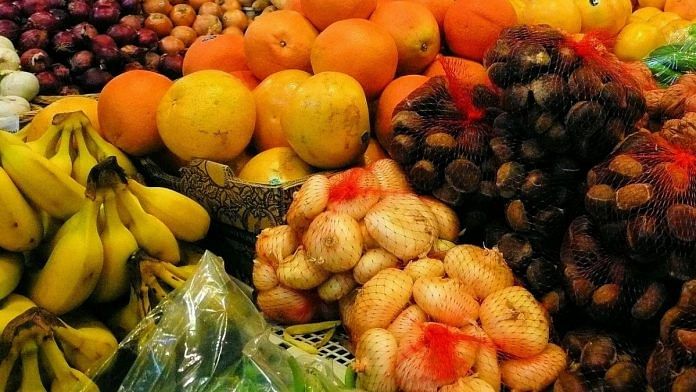I usually prefer to steer clear of the word ‘superfood’ because people tend to rely on just one food or drink to achieve all health benefits. One’s long-term goals can only be achieved by eating a balanced diet with a variety of healthy foods regularly. I’ve observed many people are unable to maintain a nutritionally rounded diet for long or are too busy to prepare one every day. When such situations arise, smart eaters can choose foods that can be referred to as ‘superfoods’ to fulfil their daily nutritional needs. The nutritional value and composition are what qualify them as ‘superfoods’ and their combination can enrich your diet and make it adequate.
India has an abundance of nutrient-dense ‘superfoods’. Surprisingly, few people consume them daily. If you want to add quality nutrition to your routine without breaking a sweat, here are some superfoods to support your overall health and wellbeing.
Amla, millets and more
A powerful fruit containing multiple essential micronutrients, antioxidants, and countless health benefits is amla. Despite its availability, this superfruit is frequently overlooked and underutilised. Incredibly, one amla can provide up to 600-700 mg of Vitamin C, making it one of the richest sources of this antioxidant. Several animal studies, as well as human studies and experimental models, have documented amla’s effectiveness for promoting healthy hair growth, optimum kidney health, liver health, and improved digestion. The fruit is easily available, cheap, and can be consumed in juice, pickle, or raw form. If you don’t have access to amla, eat citrus fruits often to avoid Vitamin C and antioxidant deficiency.
Keeping blood glucose, blood pressure and weight under control is a priority for the global population. The world is trying to replace simple refined sugar with complex carbohydrates to combat the prevalence of non-communicable diseases (NCDs) such as Type 2 Diabetes, hypertension, obesity, etc. A good choice here is millet. Among the millets grown in India are ragi, bajra, nachni, kodo, and others. Because of their rich nutritional profile providing Vitamin B, minerals, fibre, protein, and antioxidants, these are considered ‘super grains’. They are cheap, versatile, and can be grown in harsh conditions. However, these ancient grains are not frequently consumed by Indians and as a daily staple, we still rely on white-polished rice and white refined flour.
There are many ways to prepare millet — khichdi, biryani, chapati or upma. Being a climate-smart crop, millet is not only good for us but good for the environment too.
Seeds are powerhouses of nutrition. But only four out of 100 people consume a healthy spoon of seeds every day, as per my observation, mostly because they are unaware of the many benefits provided by seeds such as sunflower, pumpkin, flax, chia, sesame, etc. As an antioxidant and anti-inflammatory, seeds reduce oxidative stress in the body. Seeds are packed with vitamin E, zinc, omega 3, selenium, and protein, making them powerful ‘superfoods’ for the brain, skin, and hair.
What do I like most about seeds? They don’t need to be cooked or prepared. You can roast or soak seeds. You can achieve numerous health benefits by eating just one spoon of mixed or single seeds every day as part of a balanced diet.
Also Read: Millet dosa or Millet biryani? Read the fine print on the food fad of the future
Cruciferous vegetables and dalia
Vegetables such as cabbage, cauliflower, broccoli, kale, brussels sprouts, etc. are widely consumed as a part of a wholesome balanced diet. These veggies are delicious and considered ‘superfoods’ because of their nutrition profile comprising vitamin A, vitamin C, vitamin K, fibre, and folate. According to the United States National Cancer Institute, these vegetables possess anti-cancer properties by preventing cell damage and destroying carcinogenic ones. However, this evidence is based on animal and laboratory studies, with little or no citation from human trials. Ideally, an adult requires 2.5 cups of vegetables per day. Add at least one cup of cooked cruciferous vegetables and two cups of leafy cruciferous vegetables to fulfil your daily need.
Cruciferous vegetables are not allowed in certain health conditions. So it’s ideal to first speak to a nutritionist and then plan your intake of these vegetables for maximum health benefits.
Broken wheat or dalia is an incredibly nutritious whole grain that provides vitamin B, manganese, iron, protein, and folate. Dalia is abundantly found in India but not commonly consumed. Being high in dietary fibre, dalia may produce multiple health benefits such as promoting weight loss, preventing blood glucose elevation, promoting heart health, and supporting gut health. Make your regular upma with broken wheat instead of semolina to ensure the goodness of fibre and other nutrients.
However, dalia contains gluten and is to be avoided if you are suffering from irritable bowel syndrome or irritable bowel diseases.
Also Read: Drumstick tea & chickpea ‘pasta’: Indian staples are now Western superfoods
Bottomline on ‘superfoods’
Watch out for ‘superfood’ labelled packaged foods. Although superfoods are packed with nutrition, you can only reap the benefits if you consume them whole. ‘Superfoods’ is the brand new trend in the diet industry and many highly processed packaged foods are sold to health enthusiasts with that tag without substantial evidence.
That said, always try to eat a versatile, whole food-based balanced diet to avoid monotony and get optimum nutrition. A wholesome balanced diet is what we all need. If you’re too busy to plan a balanced diet, ensure adding some nutritionally powerful foods as advised.
Dr Subhasree Ray is Doctoral Scholar (Ketogenic Diet), a certified diabetes educator, and a clinical and public health nutritionist. She tweets @DrSubhasree. Views are personal.
(Edited by Srinjoy Dey)



